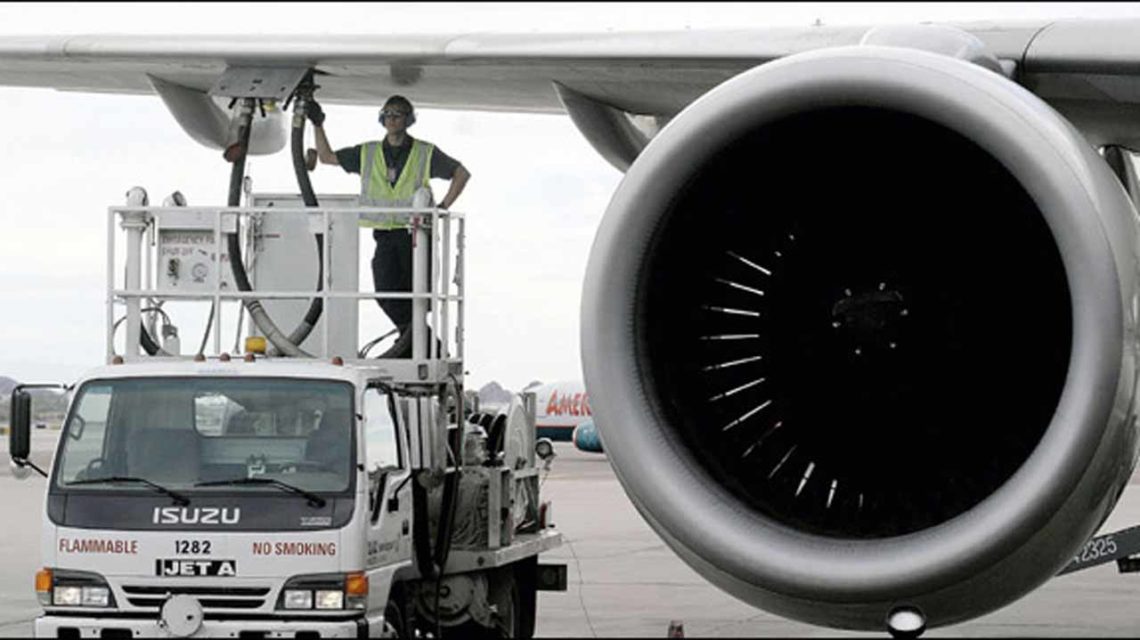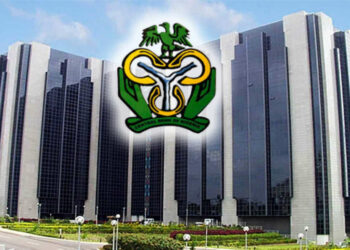A consulting firm, Philip Consulting on Wednesday, said the surge in the price of aviation fuel, also known as, Jet A1, is threatening the recovery of a pandemic-battered aviation sector.
According to the firm, the soaring aviation fuel price of Jet A1 is overshadowing a recovery in travel demand, saying, Jet A1 now constitute 70 per cent of airlines operating cost as against 40 per cent it was before the global energy crisis.
In a quarterly newsletter on Update about the Nigerian Aviation Industry, made available to NATIONAL ECONOMY yesterday, the consulting firm said, Airline Operators of Nigeria (AON) stated that, aviation fuel recorded a price hike of 268 per cent between January 2022 and April 2022, moving from N190 to N700 in four months.
According to the report, Nigerian airline operators are currently faced with rising operating costs, on the back of the rise in the price of aviation fuel.
“The surge in fuel prices continues to challenge the pandemic-battered aviation sector, with soaring jet fuel costs threatening to overshadow a recovery in travel demand. For instance, the world’s largest long-haul carrier, Dubai’s Emirates Airline, reported that fuel accounted for 23 per cent of operating costs over the year, compared to just 14 per cent in 2020-21. Given this, most airlines may not return to pre-pandemic credit metrics in the near term.
“Airlines Operators of Nigeria (AON), has said, JetA1 recorded a price hike of 268 per cent between January 2022 and April 2022, moving from N190 to N700 Naira
in 4 months. Earlier, domestic airline carriers in Nigeria threatened to shut down their operations, citing rising jet fuel costs.
“The increasing cost of jet fuel is directly linked to the rising global energy prices and the impact of the naira’s fluctuation against the dollar in the foreign exchange market. Before the Jet fuel price hike, fuel price constituted about 40 per cent of operating costs. However, in recent times, fuel prices now make up an estimated 70 per cent of the airlines operating costs,” it pointed out.
The firm, however, said, the global airline industry remains on the recovery track, saying, the International Air Transport Association (IATA), argued that the aviation sector grew by 19.7 per cent in 2021, that is, returning to its pre-pandemic growth level.
The report reads, “The global airline industry remains on the recovery track, evidenced by a gradual pick in traveler numbers despite the notable shift in the global landscape. According to the International Air Transport Association (IATA), traveler numbers are projected to exceed the pre-COVID-19 levels (103% of the 2019 total) to reach 4.0 billion in 2024.
“The recovery of the global airline industry is shaped by three broad factors. Firstly, the progressive relaxation or elimination of travel restrictions in many markets has seen improvements in the major markets, strengthening the baseline for recovery.
“Although infection rates have been rising in many countries, travel traffic now depends on local COVID-19 policies. Secondly, a marked rebound in air travel and passenger traffic is driving a gradual recovery.
“With barriers to travel coming down in most places, the anticipated surge in pent-up demand for air travel is now being realised. Lastly, the surge in fuel prices continues to challenge the pandemic-battered aviation sector,with soaring jet fuel costs threatening to overshadow a recovery in travel demand.
“For instance, the world’s largest long-haul carrier, Dubai’s Emirates Airline, reported that fuel accounted for 23 per cent of operating costs over the year, compared to just 14 per cent in 2020-21. Given this, most airlines may not return to pre-pandemic credit metrics in the near term.”
The report also disclosed that 60 per cent of flight delays were experienced in the first quarter of the year, saying flight delays remained one of the predominant challenges faced by airline passengers.
“Following the global trend, the COVID-19 pandemic also had a negative impact on the Nigerian Aviation Sector. The sector recorded negative growth of 36.98 per cent in 2020 from a GDP growth of 13.2 per cent in 2019 on the back of the air travel restriction in March 2020.
“However, the aviation industry was set for recovery upon reversing the travel restriction. In 2021, the aviation sector grew by 19.7 per cent, returning to its pre-pandemic growth level. According to the latest report from the National Bureau of Statistics, about 13 million passengers travelled through
Nigerian airports in 2021, representing a growth rate of 43.41 per cent from 9 million recorded in 2020.
“Despite the growth momentum displayed by the sector, flight delays remained one of the predominant challenges faced by airline passengers.
“According to the Nigerian Civil Aviation Authority (NCAA), in Q1 2022, 14,121(60%) flights were delayed out of a total of 23,599 domestic flights operated.
As part of efforts to mitigate flight delays and improve service delivery among operators, six Nigerian airlines recently signed the ‘Spring Alliance,” it pointed out.





